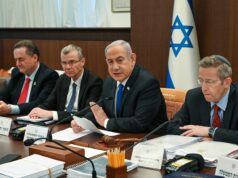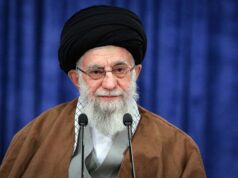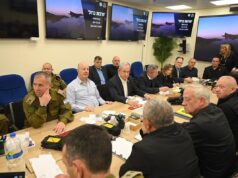Too often college and university trustees think their role is to raise money—and to leave the health of their institutions up to campus constituencies. Indeed, the message from faculty, administrators, and presidents to their trustees is that they should not concern themselves with such matters as high academic standards, student achievement, fairness in hiring, and the integrity of the tenure process. Such things should be left to the experts, the argument goes; trustees should stay out of the way and let academics decide academic matters themselves.
Typically, trustees have agreed to defer to professors, administrators, and presidents. But trustees should not just “go along to get along.” They are the ultimate fiduciaries of their institutions. If something is wrong, it’s their responsibility to know about it—and to make sure that the problem is swiftly and effectively resolved. In a post-Sarbanes-Oxley era, trustees must make oversight their business. And, as a matter of course, they should hold their institutions accountable to all the stakeholders—students, parents, legislators, alumni, and the public.
When it comes to Middle East studies—a field now notorious for its ideological contentiousness and the resulting struggles to maintain academic integrity—trustees have a vital role to play. Of course, trustees must respect the academic freedom of faculty members and avoid interfering with the proper work of administrators, but trustees should also hold scholars and administrators accountable. They must insist that research is conducted honorably, in the service of truth rather than politics. They must ensure that personnel decisions are made fairly, on the basis of merit. They must protect students’ right to learn—and not to be indoctrinated. They must insist on a climate that is conducive to the free and open exchange of all ideas. That is the oversight role of trustees—and they should not let anyone tell them otherwise.
Challenges
Middle East studies is said to embody, in microcosm, many of the structural tensions of the Arab-Israeli conflict itself. It is a field with major ideological fault lines, one in which deep and divisive political and philosophical rifts shape the direction of scholarship. Accordingly, the field is predictably plagued with problems arising from those rifts:
• Classroom Conduct. Concerns about the classroom conduct of Middle East studies professors have become especially pointed in the years since 2001. In 2005, they became a matter of national debate after Columbia University students accused Middle East and Asian Languages and Cultures (MEALAC) professors of teaching anti-Semitic and anti-Israel points of view.
Similar problems were reported in other disciplines that deal with the Middle East, Israel, U.S. foreign policy, and terrorism. In 2006, for example, a religion professor at the University of Wisconsin announced his intention to share with his students his belief that the U. S. government conspired to engineer the September 11 attacks. At the University of New Hampshire in 2006, a psychology professor brought similar beliefs into the classroom. While these incidents were not definitive violations, they raise major questions about professionalism, oversight, and academic integrity. These questions remain unresolved.
•Personnel Decisions. Since 2001, several faculty members have been at the center of controversies over whether politics corrupted the process by which Middle East specialists are hired, fired, and promoted. Cases in point: former DePaul adjunct professor Thomas Klocek (who was sanctioned for disagreeing with pro-Palestinian students), former DePaul political science professor Norman Finkelstein (who resigned after a nationally controversial tenure process), University of Michigan professor Juan Cole (who was denied an appointment at Yale, with his defenders claiming it was due to his views), Barnard College associate professor Nadia Abu El-Haj (who also faced public accusations about her scholarship), and former North Carolina State University adjunct professor Terri Ginsberg (who was allegedly dismissed on account of her pro-Palestinian viewpoint).
• Donor Transparency. Middle East studies programs, centers, and departments receive millions in funding from foreign donors with particular views about Islam, Israel, and the Middle East. Georgetown University and Harvard University caused considerable concern when they accepted $20 million gifts from Saudi Prince Alwaleed bin Talal to support Islamic studies programs. Since 2004, Harvard has accepted over $15 million from unnamed donors in the United Arab Emirates. UC-Berkeley, Cornell, MIT, Texas A&M, the University of Arkansas, Princeton, Rutgers, and Columbia have all received similar gifts.
It is feared that these funds influence the way contentious topics are taught. To compound the problem, many universities fail to report foreign gifts valued at more than $250,000, as required by federal law. This noncompliance unlawfully shields universities from necessary scrutiny.
• Title VI funds. Title VI of the Higher Education Act gives 18 universities government funding under which they are required to conduct outreach to K-12 teachers and assist with shaping lesson plans for schoolchildren. But questions have been raised about whether the funds are being used responsibly.
A 2008 study conducted by the Institute for Jewish and Community Research strongly suggests that Middle Eastern studies programs are actively working to distort how Islamic and Jewish history are taught at the K-12 level. Standard textbooks now claim, for instance, that Muslims discovered America, that Jesus was a Palestinian, and that Jewish civilization has contributed “very little” to the arts and sciences. Instead of correcting such errors and misperceptions, Harvard’s Center for Middle Eastern Studies recently ran a seminar for K-12 teachers of Islamic history that focused on activities such as making prayer rugs, reciting passages from the Koran, and dressing like a Muslim.
The above cases offer a summary of challenges facing Middle East studies—and underscore why trustees need to ensure that such programs are built with the integrity, transparency, accountability, and attention to free inquiry that students and scholars deserve. The manifold problems plaguing Middle East studies create public relations scandals, make headlines, and prompt public outcry. The scandals, in turn, raise questions of oversight and accountability from the classroom to the department to the administration and beyond.
Action
It is not appropriate for trustees to dictate who gets hired (or fired), what gets taught, what faculty members study, or how professors express their views in their scholarship and in public. But it is necessary for trustees to ensure that teaching, research, and self-governance are conducted with integrity and professionalism.
Trustees are best guided by the following principles:
• Be informed. Trustees should read the higher education publications as well as the campus paper so that they are aware of both the broader challenges facing higher education and what is happening at their school.
• Seek curricula review. Trustees should ensure that their school’s core requirements, majors, and academic programs are sound. They might consider institutional or external surveys of students to assess how they feel about their educational experience—and to discover classroom bias.
• Eliminate speech codes. These policies, common on campuses, stifle debate and honest discussion.
• Encourage a range of speakers and perspectives on panels. How can students be expected to draw their own conclusions if only one side of an argument is presented?
• Ensure that hiring, promotion, and post-tenure review are handled with integrity. Academic qualifications should be the only criteria for determining whether a professor is hired or granted tenure.
• Insist that departments state clearly what majors must learn. In this way, departmental attention is focused on student learning and the integrity of the academic program.
• Follow the money. Trustees should know who gives money to departments, centers, and programs. They should demand that reporting requirements be followed, and understand how donations can create conflicts of interest that compromise academic integrity. This means voicing opposition to gifts when appropriate.
• Review plans for campuses or programs abroad. New York University, UC-Berkeley, and Stanford have all recently entered into agreements to establish campuses and academic partnerships with Middle East states that are hostile to the U.S. or are known to violate human rights. While such undertakings can bring in substantial revenue, they can also pose a range of problems and conflicts of interest. Trustees should be a part of any decision to form such arrangements—and should not learn of them by reading about them in the paper. Voicing opposition to such agreements is entirely within the rights of trustees.
Trustees’ Critical Role
The field of Middle East studies has become a lightning rod for complicated disputes about the limits of professionalism and the scope of academic freedom. This is a field where emotions run high, and political commitments are deep. When intellectual differences become ideological, there exists a real risk of abandoning free, dispassionate inquiry for inappropriate proselytizing, double standards, and agenda driving. As such, Middle East studies acutely exemplifies why oversight and accountability are central to the academic enterprise.
The problems within Middle East studies register broader issues—and widespread confusion—within academia about what happens when professors are not accountable to students, or when departments are not accountable to deans, presidents, or provosts.
This lack of accountability is symptomatic of an institutionalized lack of oversight. That is where trustees can play a critical role.
The quality of scholarship; the caliber of teaching and learning; the intellectual viability of whole disciplines; the reputations of professors, departments, and institutions; and the honor of the entire academic enterprise all hang in the balance. Trustees must take steps to ensure the integrity of Middle East studies—and beyond.
Robert Lewit, MD is a trustee of the American Council of Trustees and Alumni.





